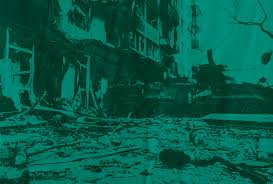
World doesn’t need WW III
Last week the West Asian region was engulfed in a dangerous conflict that can potentially trigger a regional war, perhaps a world war. This escalation of conflict between Israel and Hezbollah has significant implications for world trade. India too is worried about the adverse impact. For India, West Asia, popularly known as the Middle East, is a critical region for energy supplies and any instability there can disrupt oil and gas supplies. India depends on West Asian nations for its imports of crude and other products to the extent of 80 per cent. Exporters in India foresee a large-scale disruption in trade as it is expected to push already high logistics costs besides hurting trade in sectors such as oil, electronics and agriculture. Indian exporters also fear that the insurance costs for exports to the countries directly involved in the war could also go up, which will impact Indian exporters’ working capital. The conflict is already hurting India’s trade with countries like Israel, Jordan, and Lebanon.
According to The Federation of Indian Export Organisations the increased tensions could destabilise the Middle East, affecting trade routes like the Strait of Hormuz, through which a significant portion of the world’s oil passes. Lebanon’s strategic location near major shipping routes also means that heightened tensions could affect maritime trade in the Mediterranean. The conflict has caused two other worries. First it has shaken the stock markets. The uncertainty surrounding the situation has caused fluctuations world-wide. The entire week had been a period of turmoil for Dalal Street. Investors lost a significant amount of wealth. This ripple effect of the West Asian crisis is a headache for investors. They are spending sleepless nights on what’s in store for them in the coming days. Other Asian markets too experienced a deep impact.
Wall Street too was dazed before some good news about the US job market report provided a silver lining. Second, the broader economic impact could be felt in various sectors, including manufacturing and technology, as companies navigate the challenges posed by dangerousgeopolitical instability. Besides the impact on economies of the world, the conflict involving Israel, Hamas in Palestine, Hezbollah in Lebanon and perhaps Yemen’s Houthis and a possible active involvement of Iran can destabilise not only the region but can lead to a disastrous world war. The war clouds are looming over west Asia. The heat of the strikes is refusing to die down politically. Although Iran is avoiding a direct involvement by using only the retaliatory option, it is preparing to defend itself should Israel mess with it. Ayatollah Ali Khamenei, in his first appearance as leader at Friday prayers in about five years, called the missile strike a “shining” job by Iran’s armed forces. He stuck to his guns saying that the missile barrage was based on international law, the country’s laws and Islamic beliefs. The outgoing POTUS Biden has rightly taken a stand that he will not support an Israeli strike on sites related to Tehran’s nuclear programme in response to Iran’s missile attack on Israel. But at the same time, he hinted about new sanctions against Iran while talking to his fellow Group of Seven leaders from Canada, France, Germany, Italy, Japan and the United Kingdom. But why sanctions on Iran and not on Israel? POTUS has no answers. World leaders should intervene in West Asia and also in Ukraine to ensure the world doesn’t face another world war.
 English daily published in Bengaluru & Doha
English daily published in Bengaluru & Doha






